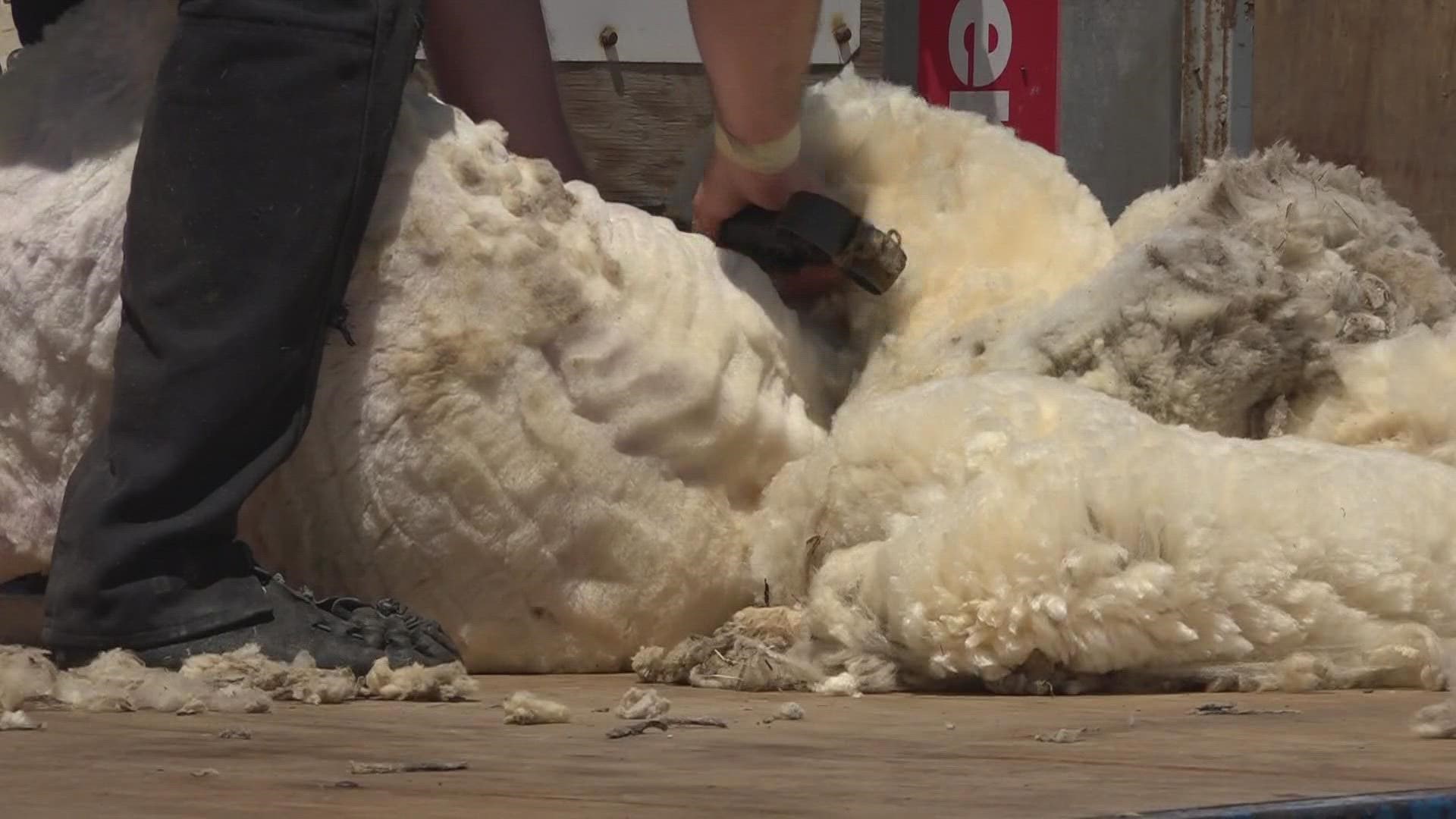HERMON, Maine — Maple Crest Farm in Hermon has held a sheep shearing competition for the last four years. Last year, farm owners and event organizers decided to turn the competition into a fundraiser, calling it "Shearing for a Cure."
The event raises money to support Cancer Care of Maine. Supporting cancer research efforts is something that hits close to home for the organizers. Trisha Martin, one of the owners of Maple Crest Farm, was diagnosed with cancer more than five years ago.
"I went through lymphoma in 2015," Martin said. "I did chemo[therapy] and radiation and I had wonderful doctors at [Northern Light] Eastern Maine Medical Center."
Martin said the event raised more than $3,000 last year. She said she hopes to at least match that fundraising effort this year.
Maple Crest Farm owners hire Edie Kershner to shear their sheep every year. Kershner, a fourth-generation sheep shearer, was the one to come up with the idea of a shearing competition several years ago. She said the process of shearing, while it may not look comfortable for the sheep, is like yoga for them.
"If you do not shear them they will become matted, they can get parasites burrowing under their skin, they get overheated, they'll stop eating," Kershner said.
Kershner said sheep need to be sheared once or twice a year. The competition on Saturday brought in a number of shearers from out of state.
Judges gave scores based on time, efficiency, and a pen score, which checks if there are any cuts or pieces of wool left on the sheep.
"Really the one thing that makes a good shearer is somebody who sticks it out regardless of how difficult it becomes," Kershner said.
Kershner also shares a personal connection to this fundraiser, having lost her dad to cancer when she was 14 years old. She said sheep shearing is all about being resilient and sticking it out when things get tough, something many can relate to, especially those fighting cancer.
"There are periods in my life, young adulthood, where I've struggled with that. But I think I became stronger mentally, and again just like sheep shearing you get to a point where you're like I just want to quit, I want to give up, and you can't," Kershner said.
The wool collected following the shearing is then brought to Bartlett Yarn in Harmony where it is made into products that the farm is then able to buy back.

